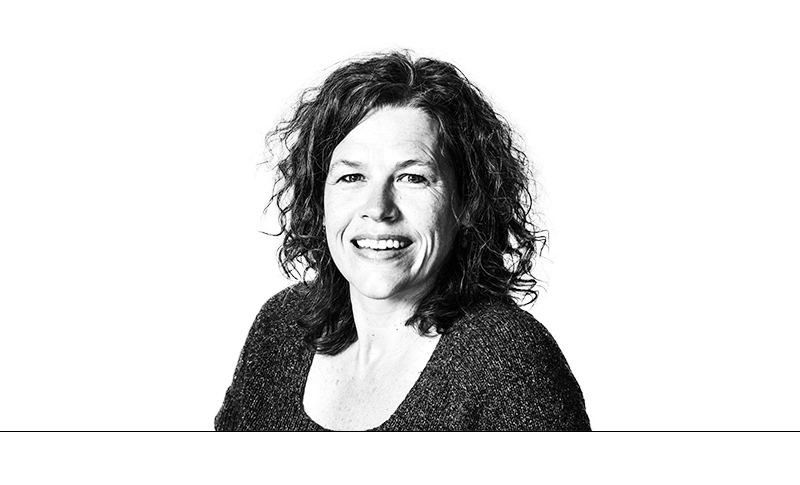Spring is in the air! We cycled from Wageningen to Hooilanden in the Binnenveld nature area, where we were overwhelmed with the sound of lapwings and the jubilant song of curlews. We saw five photographers with lenses as long as my arm standing on a mound. That tells you something special is out there. It turned out to be a water rail, a rare breeding bird. The bird watchers said it looked like a moorhen only smaller, but not as small as the little crake, let alone the least sandpiper. Huh? Many birds get called ‘great’ and ‘little’: think of the great tit (not an anatomical designation), or little stint (not a short project). But what kind of bird gets called ‘least’? What if you were to find an even littler sandpiper?
We also saw a lesser spotted woodpecker. It is just as multi-coloured as the great spotted woodpecker, but it is the size of a sparrow. ‘There’s also a middle spotted woodpecker,’ said my husband, who knows about such things. It reminded me of the Romans, who used to name their children Primus, Secundus, Tertius and so on for reasons of convenience.
We were happy as a lark because we also saw two bearded reedlings. Well, they were females. Females with beards?!
My husband reckons we also saw a feral greylag goose. That’s like going on a wild goose chase. Only not quite, because these geese are descendants of domesticated geese that escaped – hence the ‘feral’.
Names get even more confusing when you try to translate them. Goudvink translates literally as ‘goldfinch’ so surely it must mean goldfinch? No such luck: a goldfinch is a putter and a goudvink is a bullfinch. Then there is the koolmees, translating as ‘coal tit’, but does it mean ‘coal tit’? Of course not, that’s the zwarte mees. The koolmees is our friend the great tit. It’s complicated! But to suggest we only use the Latin names from now on might be going too far.
I conclude that at present bird names are not scalable, not inclusive, lazy, offensive, needlessly complex and unnecessarily difficult to translate. This needs to change.
With linguistic freedom of translator Clare Wilkinson and her bird watching husband.
Sjoukje Osinga (55) is an assistant professor of Information Technology. She sings alto in the Wageningen chamber choir Musica Vocale, has three sons who are students and enjoys birdwatching with her husband in the Binnenveldse Hooilanden.




